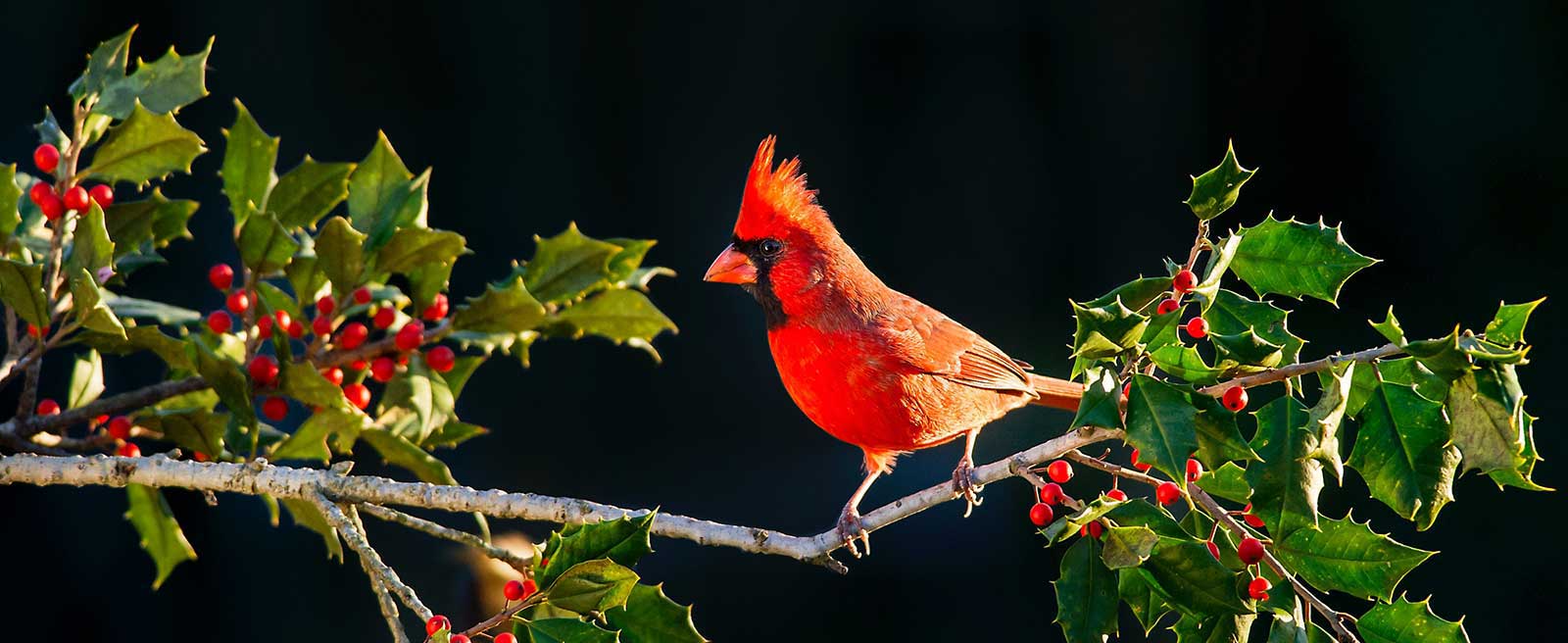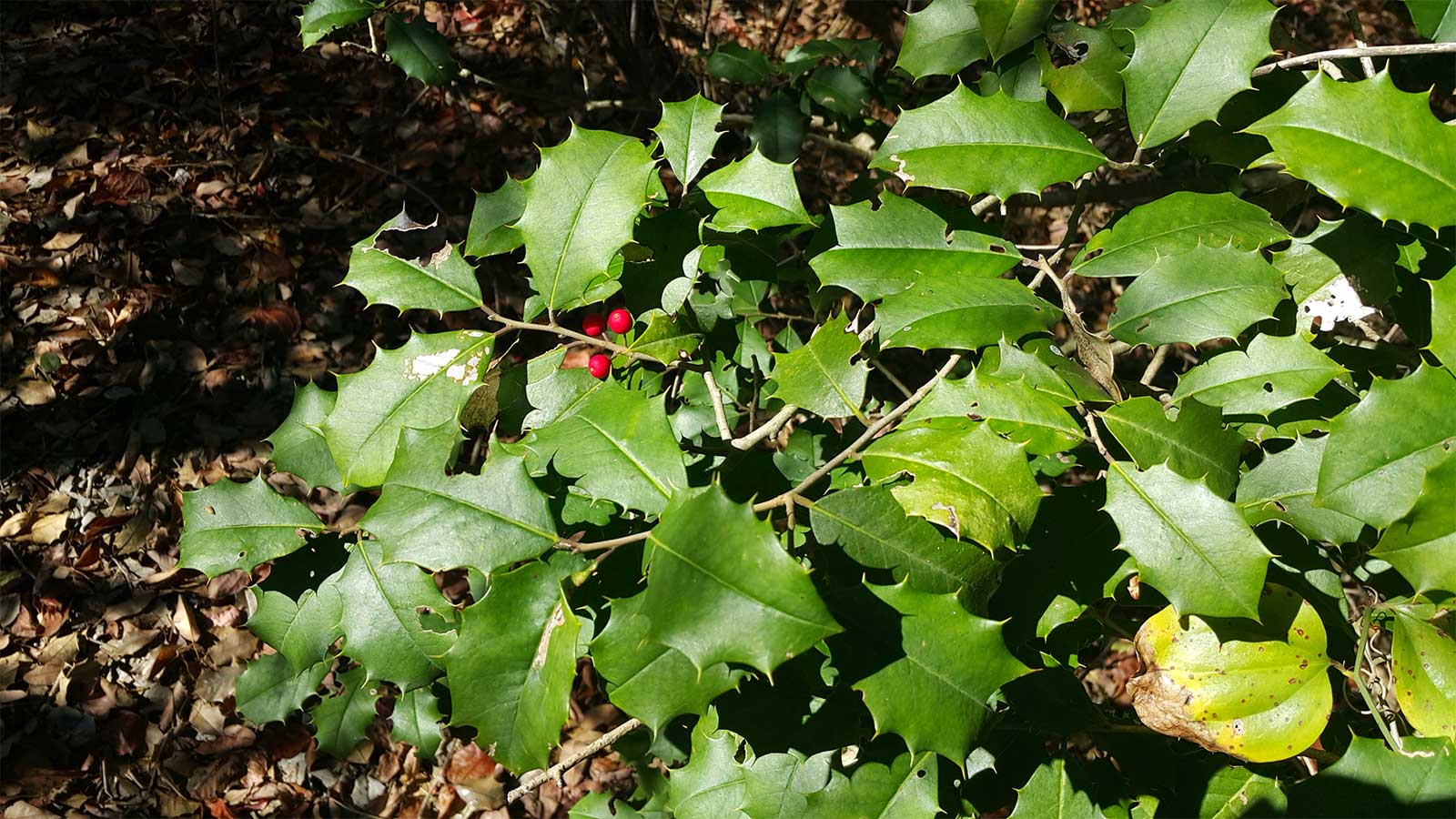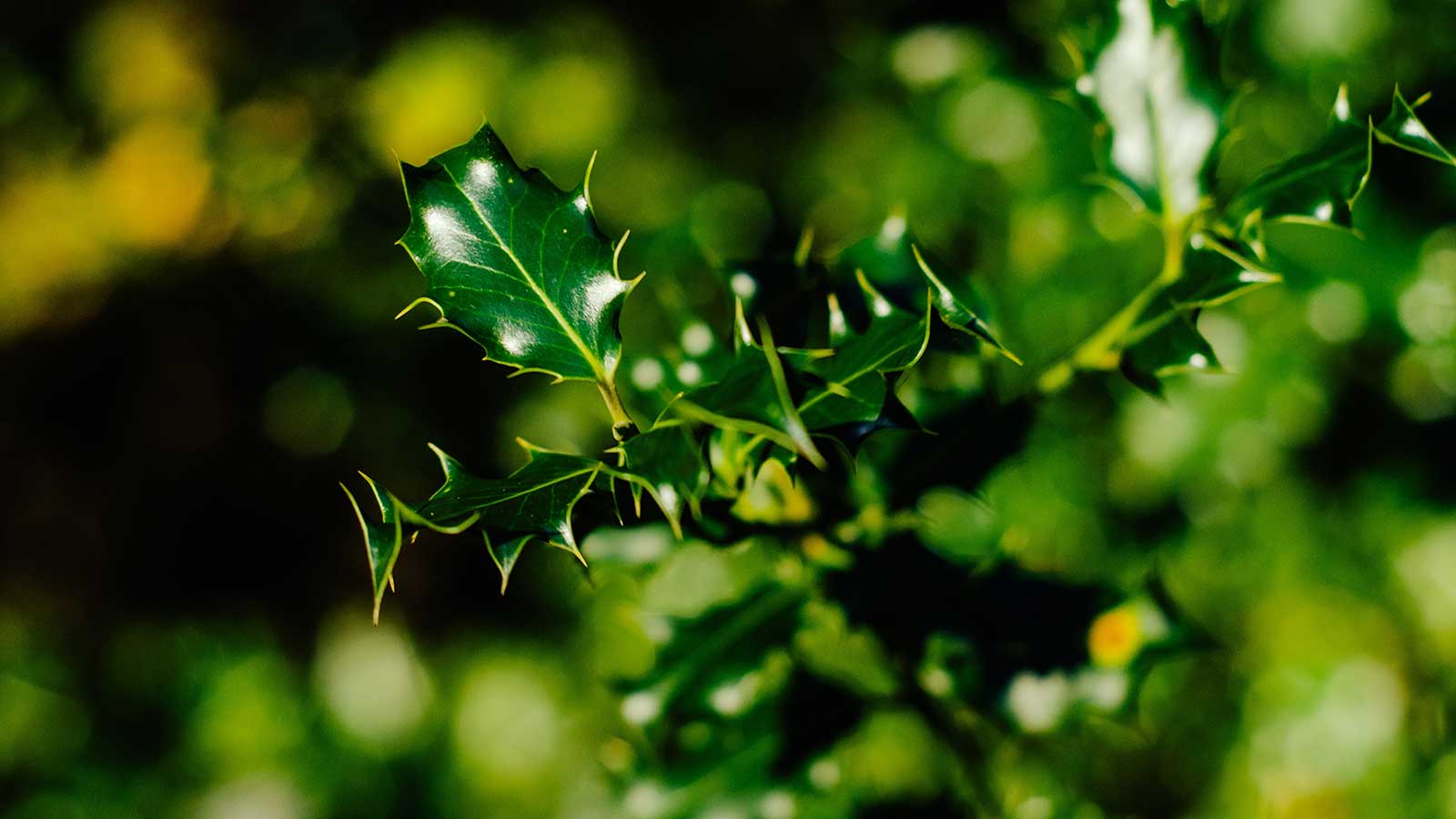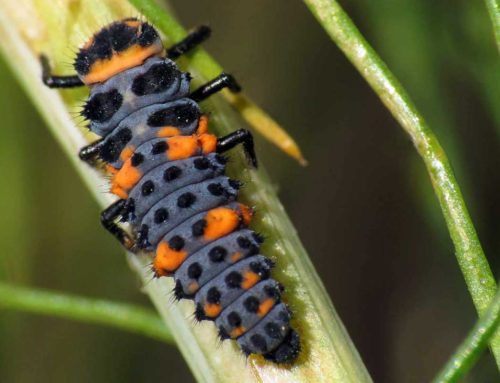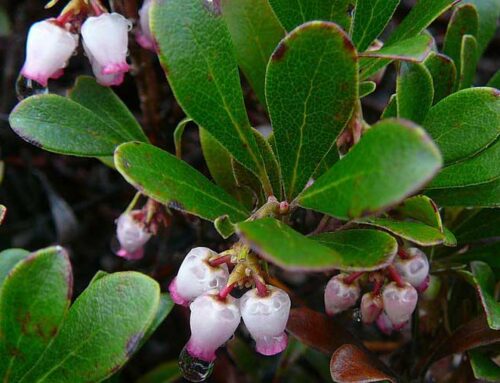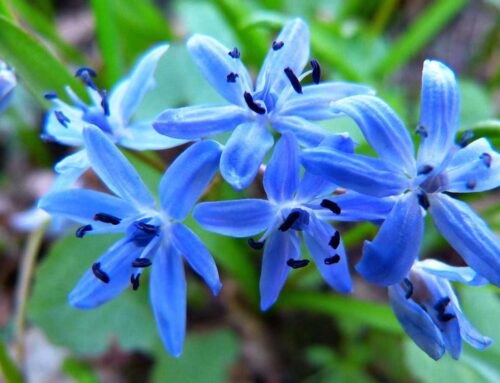Sustainable Landscaping With Native Plants
Recently I received a newsletter from the National Wildlife Federation, one of the numerous sustainable landscaping sites I frequently visit and recommend to clientele and friends. Upon opening the email the first thing that I espied was the following text as per:
Now is the time to start thinking about fall planting in your yard or garden! Many birds such as cardinals, chickadees, bluebirds, robins, cedar waxwings and mockingbirds are year-round residents or migrate south to your area in winter.By planting native berry producing shrubs or trees you will attract these birds and ensure they have food throughout the winter.
In northern states, consider:
• Sumac—Several native sumac species, both trees and shrubs, provide tiny berries and winter cover.
• American Holly—Evergreen and a bird-favorite, native holly berries are as ornamental as they are nutritious for birds.
Upon reading the aforementioned two extensive landscaping projects we completed this year immediately came to mind. Within both these sustainable landscaping projects we utilized American Holly – “ilex opaca”.
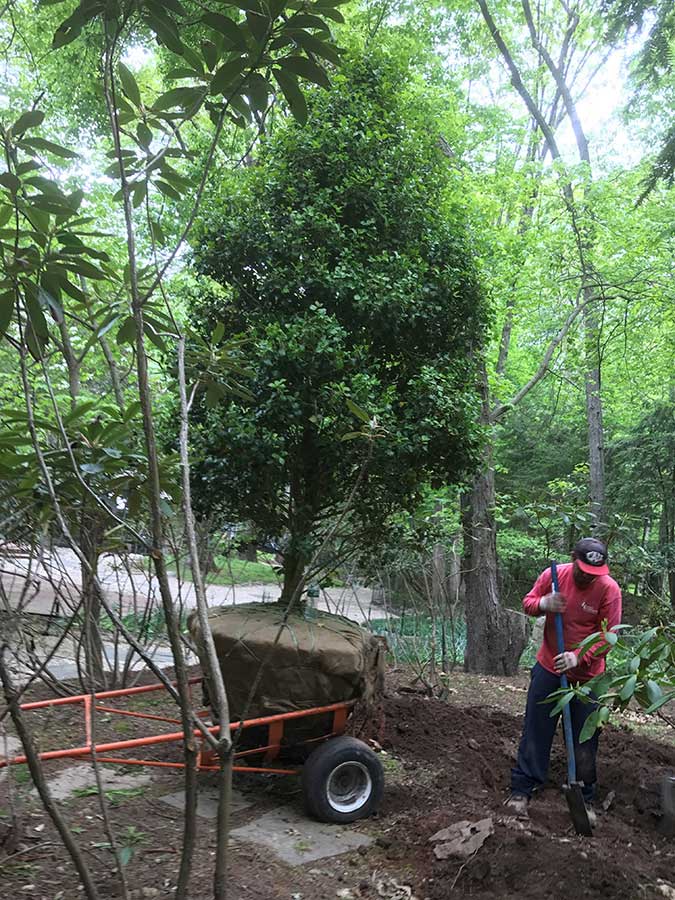 One of our clients who has a rather expansive piece of property in Bergen County wanted to implement some screening at specific locations that were somewhat open to the outside. Being a woodland setting, they wanted to restore the areas to a natural habit.
One of our clients who has a rather expansive piece of property in Bergen County wanted to implement some screening at specific locations that were somewhat open to the outside. Being a woodland setting, they wanted to restore the areas to a natural habit.
The other, a local school district, who in light of the recent events decided it is better to be proactive with regards to student safety, contacted us about a paved rear entrance student walkway that was atop a sloped ground area that was completely overgrown with invasive trees, shrubbery, vegetation such as Japanese honeysuckle(Lonicera japonica) and Rosa multiflora. With student safety and education being their top priority; they realized and understood that they needed to a full field of vision of any access to the school and they needed it now.
Ilex opaca, commonly called American holly, is an upright, pyramidal, evergreen tree that slowly matures to 15-30′ in cultivation, but may reach 50′ tall in the wild. It is native to the eastern and central U.S. American holly prefers moist, acidic, loose, well-drained soil. It will grow in sun or partial shade, but berry production is best in full sun. The dark green, elliptical leaves have several spiny teeth along the leaf margin. Plants grow best in low, acid pH soils in part shade.
The flowers are greenish white, small, borne in late spring in short pedunculate cymes from the axils of young leaves or scattered along the base of young branches.
The flowers are pollinated by insects, including bees, wasps, ants, and night-flying moths. The berries are reputedly poisonous to humans, but are important survival food for birds, who will eat the berries after other food sources are exhausted. The tree also forms a thick canopy which offers protection for birds from predators and storms. Songbirds including thrushes, mockingbirds, catbirds, bluebirds and thrashers frequently feed on the berries.
Native Plants for Bergen County – Ilex Opaca American Holly
The National Wildlife Federation has an excellent program that by becoming a part of you can Certify Your Landscape and/or to Show Your Commitment to Wildlife!
Anyone can create a welcoming haven for local wildlife. Turning your yard, balcony container garden, schoolyard, work landscape, or roadside greenspace into a Certified Wildlife Habitat® is fun, easy, and can make a lasting difference for wildlife.
How it Helps Wildlife
- Every habitat garden is step toward replenishing resources for wildlife locally and along migratory corridors.
- Your application processing fee of $20 supports the National Wildlife Federation’s programs to inspire others to make a difference and address declining habitat for bees, butterflies, birds, amphibians and other wildlife nationwide. A portion also supports work for local wildlife in select affiliate partner states. In New Jersey it is the National Audubon Society.
- By adding pollinator and monarch friendly plants when you certify your wildlife garden with National Wildlife Federation, it also gets counted towards the Million Pollinator Garden Challenge.
At Lincoln Landscaping cultivating the environment is our life and livelihood. It is our number one goal to help our clients create and maintain beautiful landscapes while reducing the impact on the environment. Whether you are interested in a pollinator landscape garden design and build or other landscaping or property management project; we can create for you an environmentally friendly, organic and beautiful property.
Lincoln Landscaping of Franklin Lakes offers complete
organic landscaping, lawn care, turf and property management services.
Lincoln Landscaping “The Natural Choice”
Mike Kolenut President & CEO
https://lincolnlandscapinginc.com
(201) 848-9699

